I
I had just turned six when my family elected to move from the Los Angeles area up to Portland that summer. My dad and a couple of his buddies had been working for the Southern California Gas Company. They saw in Portland possible happy hunting grounds within the burgeoning Oregonian natural gas furnace and appliance industry—where it was their intention to create a flourishing service and repair empire.
I wasn’t against the move, necessarily—not particularly fond of Southern California (as much as a six-year-old can have preferences about such things). We lived at the very north end of the San Fernando Valley, where beyond our housing tract lay only barren desert: sand and sagebrush, creosote, tumbleweeds and cactus. My recollections of the two years we lived in that neighborhood are an endless grayish, beige brown in tone. No, for my part, I was all for pulling up stakes and getting out of Dodge. The grass looked greener up North. At least in my estimation as a six year old it did.
For one thing, Oregon smelled a hell of a lot better. I’ll always remember the mossy, soggy, decaying balsamic scent. I still capture a faint Proustian hint of that fragrance at times when walking in the woods. It was a different world. As far as I recall, I had only seen actual rain just a few times in my life before we moved to Oregon. People had lawns! There were trees. Open fields.
When we first got to Oregon, we stayed in Milwaukie for a couple of weeks with Ray and Jean, some friends of my parents. While we were out looking for a house to rent in the area, we frequently traveled up and down Oatfield Road, the main thoroughfare in that neighborhood. On several occasions something very strange happened.
As we drove along in our powder blue Ford station wagon we sometimes passed a weary, old, white haired man ambling slowly along the shoulder of the road. He was always dressed in the same worn, gray work pants and dingy white shirt. He wore suspenders and sometimes he carried a dark coat with him, slung over his arm as he walked
Every time, as we passed him, he would stop walking and stare at our car—directly at me. His stern gaze inevitably met with mine, and his piercing blue eyes would widen as if he recognized me. It never failed to send a chill down my spine. As we drove past him, I would turn in my seat to catch another glimpse out the rear window, but by then he had vanished. No one else ever saw the man. My parents thought I was just imagining things, or inventing them. But they always registered some surprise whenever I brought up the mysterious guy as we traveled down Oatfield
We soon moved into a white, ‘30s era bungalow on the corner of 32nd and Evergreen at the south side of Milwaukie, about a mile from Ray and Jean’s place. The property had a little creek running through the sloping back yard, an open field next door on the north side of the house and small forests across the streets on the west and south sides. It was like living in a residential park. Paths wove through both forests, thick with typical Oregonian vegetation.
Early one Sunday (I know it was a Sunday, because my parents were still in bed), not long after we moved into the new house, I was exploring the larger forest across 32nd, where lay the headwaters of the little creek that ran across our back yard. It was a misty gray, moist morning. I aimlessly wandered down a trail through the undergrowth, occasionally looking in the shallow creek for crawdads, which closely resembled the scorpions more customary in my native land. I closely observed and noted ferns and other flora unique to the region.
Had I been paying attention to where I was going, the incident probably could have been avoided, but there it is—callow youth. Upon taking one (wrong) step, the ground yielded squishy beneath my feet. Moving. Faintly squealing squeakily. I looked down to see four or six squirming pink and gray baby things under my foot. With a shudder, I recoiled in horror.
Suddenly, farther down the narrow corridor I could see what at first I thought might be a cat approaching at high speed from the south. Unfortunately instead of a kitty, it was a hissing, barking mama possum, approximately the size of a Jack Russell terrier. And it was rumbling down the path directly toward me with some kind of badass retribution on its mind. It was in that instant I discovered that whatever that thing was—it had a long conical snout and ugly, gnashing, jagged teeth. And upon closer inspection, it obviously in no way resembled Jingle Bells, my poor departed cat.
I wasted no time in getting the hell out of there. Screaming bloody murder, I ran all the way home, busting into my parents room where, in retrospect, I’m pretty sure they were having sex. Hysterical child interuptus apparently made my unintelligible ravings about some saw-toothed monster across the street sound like maybe some of those “old man by the side of the road” tales I had been spinning of late. Be that as it may, I never again ventured into that forest unaccompanied, nor without some sort of weapon. Vigilance became the watchword.
That September I started school. Mom accompanied me the first day. Upon our arrival, I was not feeling positive about the conditions at the school. For one thing, there were other kids—strangers—in the room. I was under the mistaken impression that it was going to be some sort of one-on-one learning experience, a brisk dialog between my mentor and I. Instantly I felt a sense of intense betrayal, a poor little lamb being led to slaughter.
I remember sitting near the back of the row of desks next to the window, a whole roomful of other nervous little kids twitching and whimpering like a passel of baby possums. About every minute or so, I would look over my shoulder toward the storage area near the door, where Mom and a couple of other overprotective mothers stood looking on supportively. It’ll be okay, Honey.
Inevitably, that moment came when I looked over my shoulder and she had vanished. It was almost like the old man by the side of the road. She just disappeared. I remember sinking into a swoon of despondency that lasted many days. Mom and I re-enacted that first episode on several more mornings. I did not take readily to the atmosphere at school.
For one thing, the room was far too brightly lit. It seemed, well, institutional. And the other children were out of control, acting like six-year olds. What’s more, Mrs. Ystad wore big, heavy, brown, horn-rimmed glasses that completely obscured her face. From my vantage point she looked like a pair of glasses with two eyebrows and a mouth.
Eventually, I accepted the fact that I was to ride the school bus for Flying Dutchboy eternity, there to suffer the slings and arrows of outrageous sixth graders and other unruly entities. Still, as time passed I managed to make a few friends. David Cookson, Bobby Wisner and Tommy Phelps were chief among them. Tommy lived on Nixon below the field next door, down a path that crossed the trickling creek. David lived just down from Tommy, off of Aldercrest. I didn’t know where Bobby lived.
One day in late October I was over at Tommy’s after school, hanging out, watching Mister Moon on TV. It was intermittently stormy and rainy outside, with a few brief sun breaks. At the show’s conclusion I took advantage of a sun break to make a dash for home. I crossed the creek and made it up the path to the top of the hill when it began to rain again torrentially, and a bolt of lightning flashed brilliant white in front of me. Having never seen lightning before, I experienced some mild alarm, but continued on along the route back to our house. About half way across the field I encountered a low blackberry bush that was burnt and smoldering in the rain. I’ve always wondered about that.
II
It was about that same time that I started having problems with earaches. They were frequent and often agonizingly painful. And they often kept me up at night. It was a miserable time. Mom took me to the doctor and it turned out my tonsils and adenoids were inflamed and causing infections in my Eustachian tube. It was determined that an operation was necessary in order to remove the offending tissues.
So, before dawn the day after Christmas my parents drove me across town to Saint Vincent’s hospital where the operation was to be performed. I had been enticed into cooperating with the whole scheme under the impression that I would spend my convalescence reclined in ice cream heaven—“all the ice cream I could eat.” Those were the exact words.
That sounded great to me. One would think that I would have been more wary given the treachery I had only recently endured over my entry into the world of scholastics. But alas, one of my chief features, that of gullibility, has now been fully exposed, though it’s much too late in the game for anyone to possibly profit from that disclosure.
The memory remains quite vivid of laying on the gurney as a masked nurse in a blue skullcap wheeled me into the operating room. The light above me was very bright white. There were three or four other faceless people hovering around. I was quite frightened. Someone placed an oxygen mask over my face, cool air gently forcing its way into my lungs.
But the air abruptly changed to some malignant petroleum wind, like alcohol or airplane glue, but even worse. Ether. I began to panic, telling the shapes to take the damn mask away, the air was bad. One of them told me to “just blow the bad air away.” Two puffs and I was down.
And transported to a blood-maroon hued hall. A great glowing golden sun hung on the wall at the far end of the massive room. Indifferent shadows danced at the periphery, and loomed and pooled gloomily at my side. I was not so much in fear of the spectacle as in awe. I had never seen anything like that before. Everything went well, operation a rousing success. I exited the operating theater tonsil and adenoid free, ready to resume my life as a child.
I awoke in a dim grog and promptly vomited blood all over the hospital bed—immediately screaming out in delirious terror. Nurses came and things were eventually made right. Before long my ice cream prize arrived in a stainless steel bowl on a tray. However, one unforeseen wrench in the works was the fact that I could not bear to swallow. My swollen throat would not allow it. All the ice cream one could want, but throat too raw to swallow. Rime of the Youthful Tonsilectomy. It was abject hell.
Eventually they sent me home and somewhere along the line I was finally rewarded with the afore-promised ice cream indulgence, though it was a hollow bounty and by no means worth the effort it took to acquire. Duly noted.
Winter passed rather uneventfully, settling into the dull routine of relentless first grade rote repetition, interspersed with brief interludes of incoherent play in the gym at recesses and after lunch. Tommy, Bobby, David and I became fast friends, spending most of our free time together, looking for any innocent forms of anarchy available within our limited sphere.
I’m not sure who it was—probably David—but someone hatched the idea of a competition—something dangerous, something outside accepted boundaries. Something wild! Since it was his brainstorm in the first place, he elected to initiate the proceedings. The four of us stood outside the girls lavatory, while David worked up his courage.
He drew a deep breath, and without warning sprinted through the in-door to the girls’ lavatory. He stayed in there for fifteen or twenty seconds while the panic-stricken girls screamed uncontrollably. It was delightful pandemonium. As David came running out, Tommy galloped in, the object being to remain inside longer than anyone else. He definitely stayed in there for a greater duration than David had, a count well-past twenty. Then he tore out as Bobby scurried in. And he stayed in there longer than the other two had. Around twenty-five, I think. That’s what I counted.
Then came my turn. I dashed through the door as Bobby scampered out. Inside, girls were jumping up and down, waving their hands frantically, crying, running in aimless circles—too frightened to simply leave the premises. Quickly scuttling over to the wall next to the washbasins, I squatted down on my haunches, buried my head in my arms, and counted to forty.
Secure in the knowledge that victory was most certainly mine, I trotted triumphantly from the girls’ can, directly into Mrs. Mitchell—who was standing stiffly next to my friends, an enraged expression on her somber face. Mrs. Mitchell was a tall, slender woman with graying hair and she wore a long, dark skirt, which enveloped me like a wave as I plunged headlong forward.
Mrs. Mitchell was not a woman with whom to be trifled. She was known among her second grade students as a dark force. Strict and demanding. She taught my class for rhythms hour on Friday mornings in the rec room, where we did the Hokey-Pokey and we shook it all about with military proficiency. Left right, left right.
As I desperately swam in the tides of her voluminous skirt, Mrs. Mitchell fished around in the wake until she caught an ear. Grabbing it indelicately, she dragged me howling up to Mister Spring’s office. There, she pushed me down onto a wooden chair outside the room where he sat at his desk, talking on the phone. Mrs. Mitchell told me to stay there and not to move until the bell rang to go back to class. She informed me that I would be spending every recess in that chair for the next two weeks.
I was petrified at that prospect. Mister Spring was a notoriously harsh disciplinarian, who stood for no shenanigans, and ran a very tight ship. He was in his fifties, of average height. Thin. A dashing shock of cloud white hair. His face was angular and leathery tan. He had a mole the size and placement of which was identical to that of Abraham Lincoln.
Mister Spring sat working at his desk, and occasionally peered out at me through a window into the foyer where I sat. From time to time he would get up from his desk and wander out of the room, ignoring me whenever he passed. He never once addressed me, or my infraction, over the two weeks of my detention. It was as if I wasn’t there.
For my part, I mostly sat there meditating, humming to myself, thinking about what I had done, pretty certain that my days as a lavatory racer were at an end. The guys and I had acquired a reputation throughout the lower grades as being devil-may-care mayhem makers. And while that attention was well worth the penalty, I was much relieved when that phase was finally over.
III
Shortly after my seventh birthday that spring, I began to experience strange, recurring dreams. They were dreams outside my ken. Not of this world. Awe-inspiring dreams. Unexplainable. Mysterious. Typically they happened a couple times a week.
The dream would begin as a single beam of light, spanning all dark space and perpetual time. The beam emitted a subtle pitch, vibrating almost imperceptibly a slight color. As the dream transpired, the beam began to merge with other beams of light. They all emitted a unique frequency and vibrated a vaguely different spectral hue.
Slowly a billion separate beams, a trillion separate beams, an universe full—each its own distinctive vibration—from all directions, converged into while emerging from a great repository sphere of immaculate white light. The sphere sang a perfect soprano mother sigh, the all thing of every, each tine of the faultless orb, chiming the harp of an eternity of celestial souls.
The dreams didn’t frighten me, or at least not as they should have. I was fascinated by their inarticulable majesty and drawn like a moth to the magical musical fire in it all. It was the endless reverberation of the herald angels. It seemed to me, in my naïve universe, to be the truth.
At about the same time, I became aware of the sport of baseball. The Milwaukee Braves were doing very well. As the season progressed into the summer, the Braves remained the leaders in the National League race. I was absolutely brimming with civic pride. I did not understand baseball at all other than to toss a ball with my dad. But our guys, our Milwaukie Braves were takin’ it to the streets! I learned baseball and geography on approximately the same time line. But not for another year or so.
That same summer, my cousins came up from California to visit us. My cousin Jimmy was six or seven years older than me and was crazy, man, crazy over Elvis. He had all of Elvis’ singles: “All Shook Up,” “Teddy Bear,” “Hound Dog,” “Don’t Be Cruel,” “Jailhouse Rock,” all of them. It chafed my dad no end to have to let his nephew play those infernal things on his beloved hi-fi system, the one he built himself and of which he was extremely proud. Only cool jazz was supposed to emanate from that special speaker he had crafted, with the exclusive coaxial duplex driver and the deluxe folded horn cabinet.
Elvis sounded like a million bucks through that sound system! And I started to pay closer attention to rock music than I had in the past (when I was six). American Bandstand began broadcasting nationally around the same time, so there was an immediate conduit for that newfound interest as well. Mom always listened to Al Jarvis and watched Peter Potter’s Juke Box Jury when we lived in California, so I was, like, hip to the hits, man. But the rock and roll was a bit of a new thing.
Early that summer, a couple of weeks after public school let out, Mom decided that my brother and sister and I needed religion—so she sent us to a “catechism camp” at St. John the Baptist parochial school in Milwaukie. My dad was raised Catholic, although he only went to church on Christmas and Easter. The only prayerful words I ever heard him utter were “God damn it” and “Jesus H. Christ.” Still, Mom had converted to Catholicism to marry Dad and felt duty-bound to protect us from going to Hell, if it was at all within her power. So we dutifully attended mass every Sunday.
Catechism camp was relentlessly dreary. Perfectly useful summer days wasted in a drab, institutional-green room with nothing for distraction but a blackboard and everywhere renditions of Jesus walking among lambs, Jesus preaching to people, Jesus tending to the sick and dying. The fellow seemed well intentioned enough, as far as I could tell.
Cheerless, colorless nuns floated around those classes, glumly preaching the harsh black and white dogma of the Catholic church. Occasionally a grim priest, almost always Father Wachter—not a man of many words—would address the class.
He would enter the room with jaws clenched, and standing there before us would deliver in a dour monotone a reproachful sermon as to how we were all doomed to the merciless fires of unceasing hell unless we got ourselves intimately familiar with the Sacraments of Penance and Communion without delay. That being made darkly clear, he would turn and walk directly out of the assembly without saying another word. He did that several times in the two weeks I was stuck that class. It never failed to send shivers up my spine.
My teacher nun that summer was Sister John Mary. In her I learned a profound lesson that served me well for the rest of my Catholic servitude: Never trust a nun with a man’s name in her patronage. In those days, your Sister Matthew Theresas, or Sister Thaddeus Clares, and Sister Rose Timothys were sure to be bad news. Poor, pitiable, humorless drones in black habits framed in white.
Sister John Mary was the most severe of them all. She radiated cold, bleak despondency. She was tall and deathly gaunt, her cheekbones protruding ominously. She carried with her a wooden footruler, the one with the metal edge, often slapping it in her hand to maintain our attention. It was Sister John Mary’s charge to instruct us in the plan for avoiding Hell. And it wasn’t going to be any picnic.
Our four hour days primarily consisted of learning the Apostles Creed, which was the basic oath to the tenets of the church; and also the prayers necessary to save our wretched souls: the “Hail Mary,” the “Our Father” and the “Act of Contrition”—the password prayers required to avoid the certainty of hell. We kids had been baptized. So we already had Original sin out of the way. But there were still the other obstacle sins that we needed to constantly confront, confess and endlessly pray away, ever unceasingly.
So, in order for us to be chaste enough as seven-year old children to receive Holy Communion in the fall, we needed to be heartily sorry for whatever violations against whomever we may have committed up to that point. Therefore we were going to need to confess those sins to someone (usually Father Wachter) behind a dark screen in a little black-curtained booth at the back of the church—always on Saturday afternoons, when any sane child would be out doing pretty much anything besides confessing sins one had to make up in order just to confess them.
But deeply impressed with the importance of avoiding something closely resembling Dante’s depiction of Hell, I committed to memory the creed and prayers that were so damned important in ensuring my infinite innocence before the grand court—although there were occasions when I confused them with the Cub Scout oath, which I was also attempting to master at around the same time.
The brain-washing went well enough until we hit a snag on day seven. I asked about the beams of light. I asked Sister John Mary about the beams of light that made a colorful sound, that all merged into the big ball of light with the voice of all life and time. The other kids looked at me dumbfounded. I wasn’t trying to be impertinent. I figured the beams of light had something to do with God and Jesus. And, logically, she seemed to me to be the most likely resource concerning such spiritual provisions.
However, Sister John Mary stared at me with a shocked spiteful sneer, as if I were a lower order of demon. She rushed like a shadow from the front of the room to my side. Without a word of interaction, she ordered me to extend my right hand, palm down. I remember looking at her inquisitively, as if we were going to play a game of some sort. Without further interaction, she drew the ruler, metal edge exposed, and smartly rapped me three times across the knuckles of my fingers.
A fine line of blood instantaneously formed across all four knuckles and I peered up at her, wounded in every way. Without a word she returned to the front of the class and went back to whatever she had been indoctrinating us with, probably a perfect “Act of Contrition.” I never brought up the beams of light again. But I never forgot them either. Something changed in me that day—something for which I would not find a word to describe for another year or two.
The Milwaukee Braves won the World Series that year and Henry Aaron became my favorite player, because his name was closely associated in every way with the team’s success, especially that year. The civic response to all of this around the City of Milwaukie was decidedly low-key I felt. I didn’t see any signs of a celebration whatsoever. I was a bit disappointed in that.
Eventually Geography became a subject and I discovered Milwaukie, Oregon and Milwaukee, Wisconsin were actually two places quite some distance apart. Still I ended up choosing my favorite professional football team based on that understanding: the Green Bay Packers.
About that time I was made aware of the word “agnostic” and became one the moment I heard the definition. Actually I had become one the instant Sister John Mary cut me across the knuckles. The scars from that cut have never healed.
The dreams of the beams of light began to subside around that time too. Eventually, not long after Christmas time and the birth of my youngest brother, the dreams stopped altogether. My parents felt compelled by Catholic guilt to force me to continue attending some form of catechism until my Confirmation at age eleven, when I was allowed to choose my own spiritual path going forward. I declared agnosticism and quit going to church altogether.
 And as that path unfolded over the years, I kept a promise to myself, one that I made at age eight when I stopped having them—to never forget the dreams. Through all the abundant changes that have manifested within my life, I have never forgotten and will always remember as the one great truth this single spark of light that spirals a vibration of my own lone existence through all indefinite time.
And as that path unfolded over the years, I kept a promise to myself, one that I made at age eight when I stopped having them—to never forget the dreams. Through all the abundant changes that have manifested within my life, I have never forgotten and will always remember as the one great truth this single spark of light that spirals a vibration of my own lone existence through all indefinite time.
********************************************************************************************************************
The latest installment of Biblical Haiku:
The Bible IX
The new testament
Tells the story of a guy.
Didn’t hang out long.



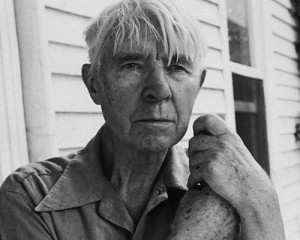

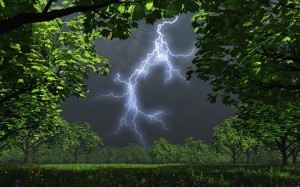

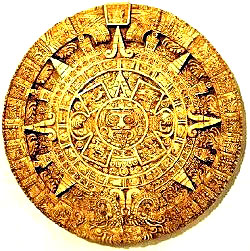

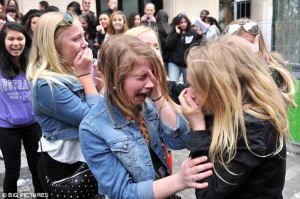
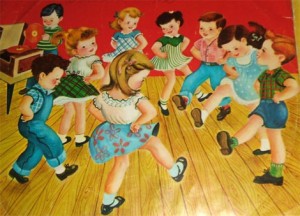
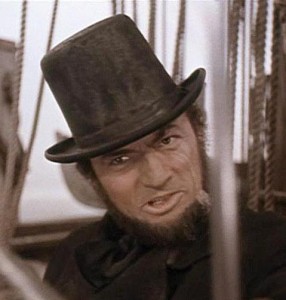


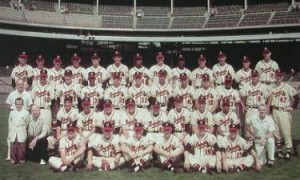
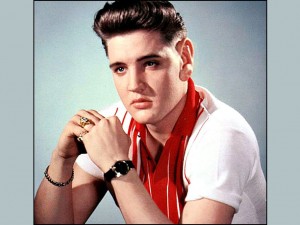
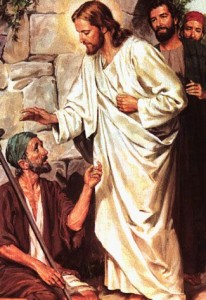
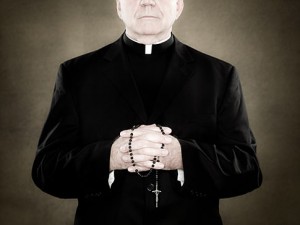
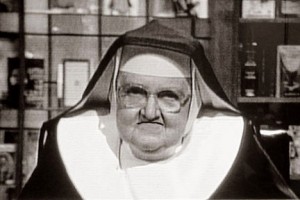
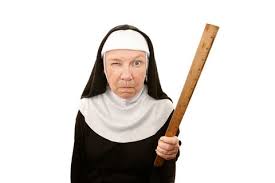
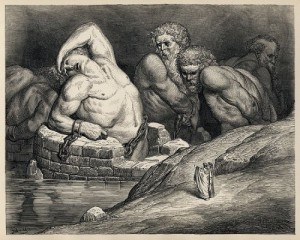
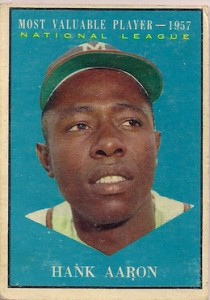
Pingback: Typhoon | the Good, the Bad, and the Ugly
I envy you in a way. I’m sorry about the trauma at such an influential age. As a result of the trauma, you put all of this into long-term memory, as your life changed.
I don’t have acute recollection of my childhood, until I was 11-yrs old. I only remember traumatic moments of being a child. When the real trauma happened when I was 11, I remember every smell, feeling and detail.
These experiences gave you the twisted gift of memory. I am convinced we are molded by magnets early in our lives: either being drawn or repelled.
Glad you landed in Puddletown and became a part of my life, Sp!